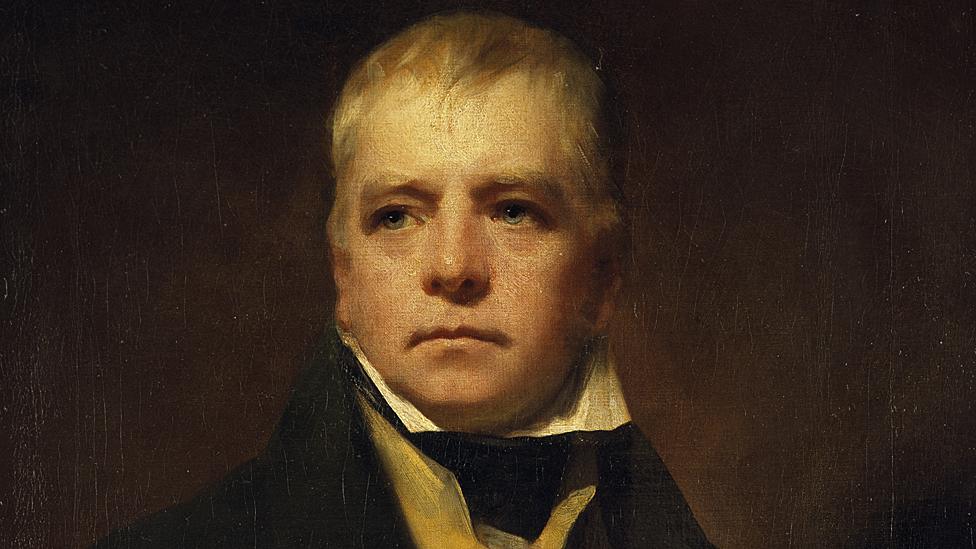Sir Walter Scott: £1m project to shed new light on poetry
- Published

Sir Walter Scott is often considered the founding father of historical fiction
A £1m project has been launched by the University of Aberdeen to shed new light on Sir Walter Scott's poetry.
The influential author was born in Edinburgh in 1771 and is often considered the founding father of historical fiction.
The team will revisit original manuscripts, correct printing errors and make fresh analysis of handwritten notes.
This will lead to the publication of a new 10-volume edition of verse.
It is hoped the project will help bring his work to a new audience.
A prolific writer in many forms, his most famous novels include Waverley, Rob Roy and Ivanhoe .
He had strong Borders connections and lived for many years at Abbotsford House near Melrose, which hosts a huge collection of items related to the writer.
He died in 1832 but his influence on other writers had been, according to Encyclopaedia Britannica, "immediate and profound".
The Aberdeen researchers have been awarded funding of more than £800,000 by the Arts and Humanities Research Council (AHRC) towards the project.
'Continued relevance'
The team said the speed of his publishing driven by an "unquenchable thirst for his work" combined with his "notoriously spidery handwriting" meant that many errors occurred during the printing process.
The researchers at the University of Aberdeen's Walter Scott Research Centre aim to return his poetry to a form which more closely reflects his original intentions.
The project will be led by Prof Alison Lumsden, who said: "Unlike Walter Scott's novels, which have never been out of publication since they were released, there are very few editions of his poetry and those which do exist are severely compromised by 19th century editing practices.
"We want to reinstate Scott's notes as part of the reading experience and to establish texts as close as possible to the author's wishes."

Prof Alison Lumsden said Sir walter Scott is important on an international level
The expert explained: "In the year that we celebrate the 250th anniversary of Scott's birth, this award underlines his continued relevance not just in Scotland but on the international stage.
"He is such an important part of our cultural heritage and this project will ensure that his legacy is preserved with the accuracy and detail it deserves."
The research team will also provide their own detailed explanations of his work.
They will work with staff at Abbotsford to create teaching materials for schools.
- Published19 March 2021
